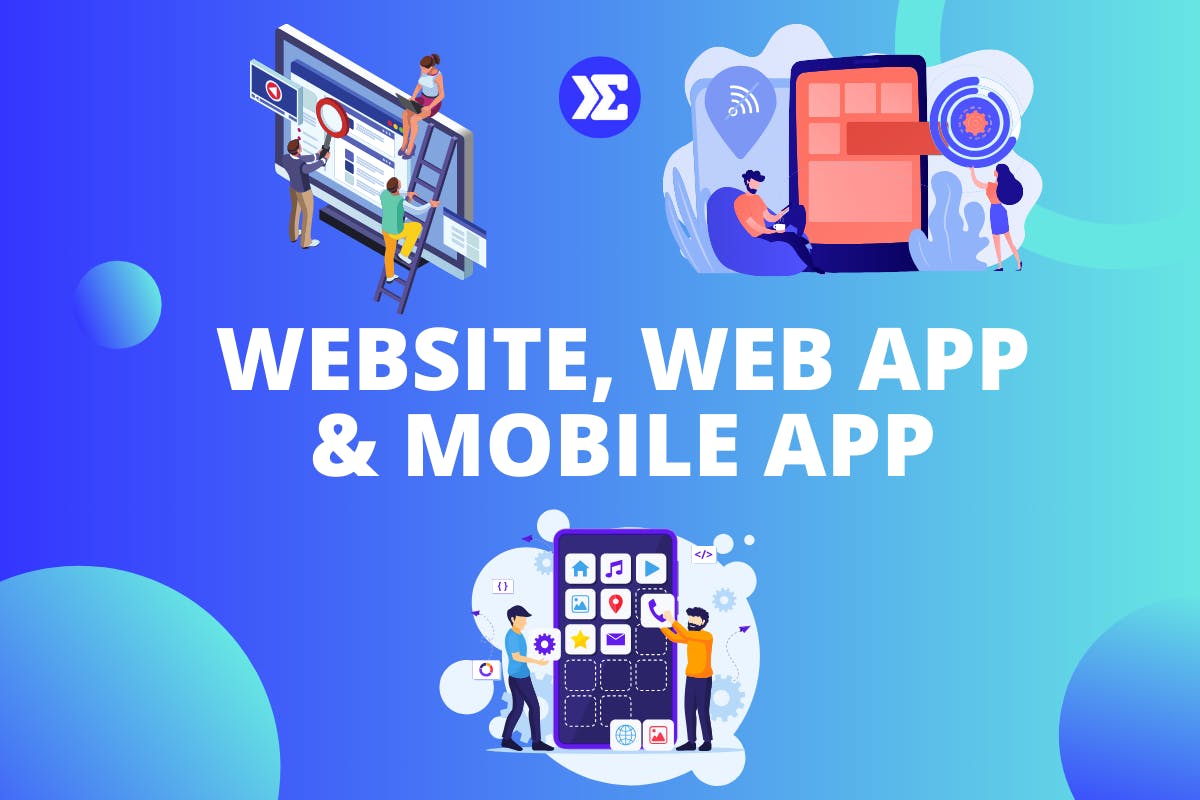

It’s typically hard for an end-user to know the differences between a website and a web app, or a web app and a mobile app. The most important thing for them is that they get the results for what they are searching for.
However, as a developer, you’re the one who does the building for these products. One of the first decisions you’ll make when setting out to build a digital product is whether you’ll create a mobile app, a web app, or a website. So, can you tell the differences between these?
Here’s what you need to know about the differences between mobile apps, web apps, and websites so you can make the right choice for your business.

A website is a set of connected web pages you can access with one web address. It can be created and managed by individuals, businesses, or organizations, serving diverse purposes.
These pages are stored on servers and can be seen using the internet or a local network. Websites have different sections with text, pictures, and videos. You need a browser like Chrome or Firefox to look at them.
Example: a restaurant’s web page where you can view the menu, hours of operation, etc. Or, a forum or blog.
Best programming languages for attractive and useful websites, web pages, and web apps, along with some tools you should understand to fully use these programming languages.

A web application is a program stored on a distant server and accessed through a web browser. While it shares similarities with a website, it goes beyond displaying content.
While websites mainly present static information like portfolios or brand pages, web applications are designed for user interaction. Take Instagram, for instance. You can scroll through posts, send messages, and share content, which goes beyond what a website typically offers.
Unlike websites, web applications require authentication and use both server-side and client-side scripts to handle data and user interactions. They rely on servers to process user requests effectively.
Example: Google Apps, Amazon, YouTube
For a smooth and flawless experience and surfing, specific programming languages are used to develop the web application. Some of them are:
Some of the popular web applications built using the mentioned programming languages are Pinterest, Twitter, Yahoo, MailChimp, Spotify, and others.
Here are some core differences between websites and web apps for your better understanding.

In simple terms, a mobile application is a software program created to offer services on mobile devices. While mobile and web applications share similar functions like displaying content, providing tailored responses, and ensuring a smooth browsing experience, there is a significant difference between the two.
Mobile applications are exclusively designed for use on mobile devices and can only be installed and accessed through them. On the other hand, web applications can be accessed via any web browser on both desktop and mobile devices.
To illustrate this difference further, let's consider Instagram, a widely used mobile application with over a billion users. While Instagram offers quality services on mobile devices, it cannot be downloaded and used on a PC. For PC users, there is a separate version of the application specifically designed for desktop use, highlighting the distinct nature of mobile applications.
While mobile apps typically require a higher investment for development compared to web apps, they offer several advantages worth considering, although with certain limitations:
Mobile applications have a vivid and interactive UI and deliver an optimal performance tailored to user interests. The following are the programming languages used for developing mobile applications:
TikTok, Spotify, Amazon, Whatsapp, Telegram, and Snapchat are some of the popular mobile applications used by millions of users and are well known for their delivery of optimal performance.
The type of digital product you choose to build will ultimately be a reflection of your business strategy and budget, whether it's a website, web app, or mobile app. Each provides an enhanced experience to the user, in terms of delivering services.
We hope you understand the difference between a website, a web app, and a mobile application. Now, if you want to build one of these digital product by yourself, first, you need to learn some basic coding and work your way from there.
Want to learn how to build websites, web apps or mobile apps? Our Coding Bootcamp offers a 3-month program to help you learn the latest tech stack to build these yourself.
Facebook: https://www.facebook.com/joinsigma/
Instagram: https://www.instagram.com/joinsigma/
Linkedin: https://linkedin.com/company/79085028/